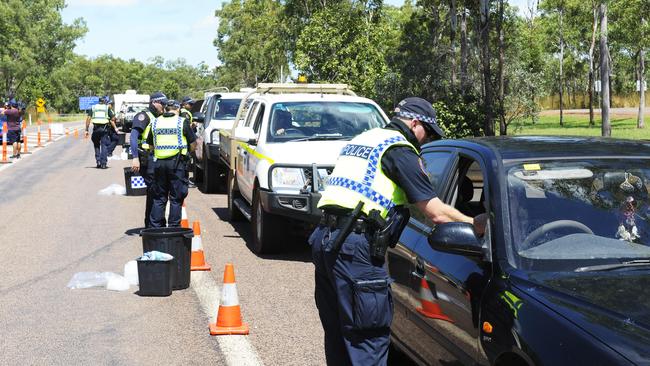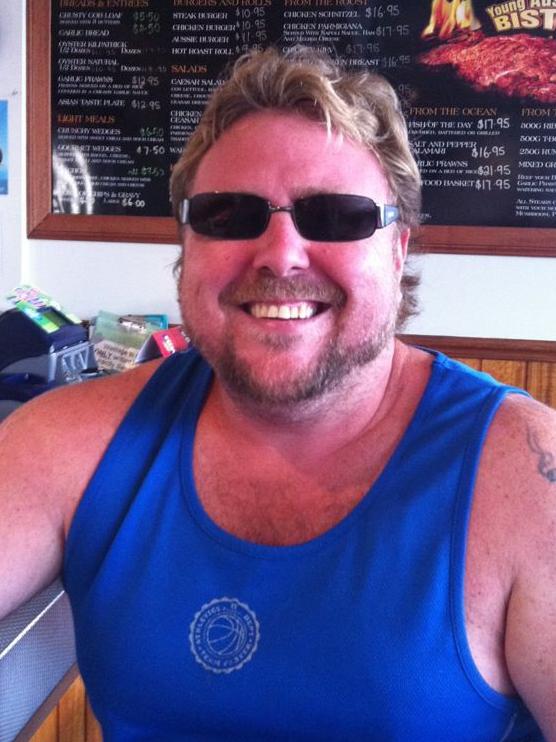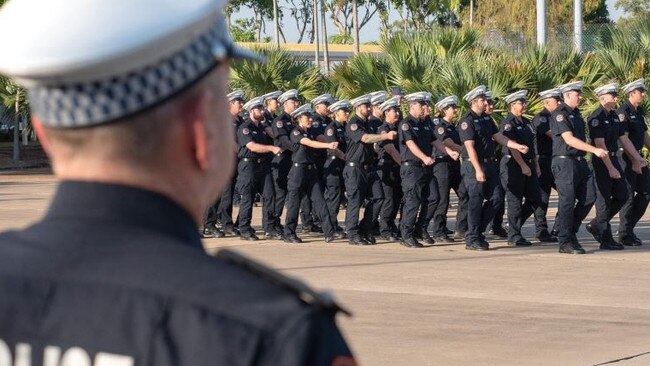NT police receive ‘inadequate training’ on breath, saliva testing powers and responsibilities: Judge
Rookie police officers in the Northern Territory are given “inadequate training” regarding their powers and responsibilities when taking breath and saliva samples of offenders, a judge has found.

Police & Courts
Don't miss out on the headlines from Police & Courts. Followed categories will be added to My News.
Rookie police officers in the Northern Territory are given “inadequate training” regarding their powers and responsibilities when taking breath and saliva samples of offenders, leading to a risk of “systemic noncompliance,” a judge has found.
Acting Judge Ray Murphy’s comments related to a recent case in which he ruled that two toxicology certificates, tendered as evidence by police in their prosecution of Cossack man Daniel Wade Kelly, 48, who had been charged with low range drink driving and drug driving, were inadmissable.
Kelly’s two charges were dismissed, although he pleaded guilty to two related offences.
Acting Judge Murphy found a trio of officers, Constable Brooklyn Engles, Acting Sergeant Colin O’Keefe and Acting Sergeant Robert Angove had breached s29AAL of the Traffic Act 1987 (NT).

The section holds that a person detained after returning a positive reading has a right to communicate with a medical professional for the purposes of obtaining an examination and a blood test, and that police “must make arrangements that are reasonable in the circumstances” to facilitate the communication.
The three officers did not do so for Kelly, Acting Judge Murphy found.
The three officers gave evidence during the hearing as to their knowledge of police powers and obligations under the act regarding the taking of breath tests, breath analysis, and saliva tests.
Const. Engles “confirmed that [her] training lasted for a single day and consisted of having a read through the legislation and having a shot at one test,” Acting Justice Murphy said.
“Under cross examination Constable Engles confirmed that she can’t remember having read section 29AAL of the Traffic Act.
“She had never had anyone ask for a blood test before the defendant’s arrest and was not aware of what the protocol was when a request for a blood test was made.”
A/Sgt O’Keefe also testified that the training was for a single day and consisted of reading the legislation and conducting a saliva test.
No-one had ever asked him for a blood test before and he was “not aware of section 29AAL of the Traffic Act at the time that the defendant had requested a blood test,” but looked it up after the request was made, Acting Judge Murphy said.
A/Sgt Angove characterised his training regarding breath and saliva testing as “using the machine and filling out the paperwork”.
He was likewise unaware of s29AAL prior to Kelly’s request.
Acting Justice Murphy found that the trio’s ignorance of Kelly’s statutory right as a person detained after returning a positive reading was of great concern.

“[The officers’ failure] was due in large part to the systemic failure of the Northern Territory
Police Force [NTPF] to train its members with regards to section 29AAL of the Traffic Act,” he said.
“This inadequate training poses an ongoing high risk of systemic noncompliance as opposed to isolated noncompliance by police with regard to that provision.”
Police declined to answer detailed questions, instead responding with a brief statement when contacted by the NT News.
“NTPF continuously review their college training program to ensure it meets high community standards,” a spokeswoman said.





